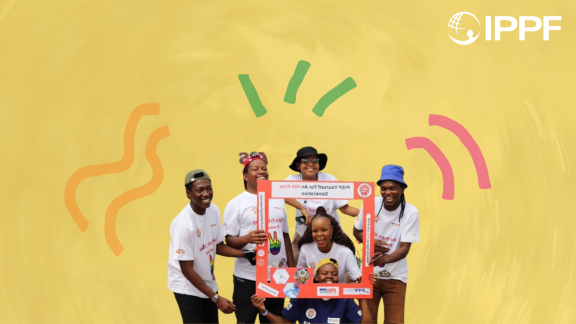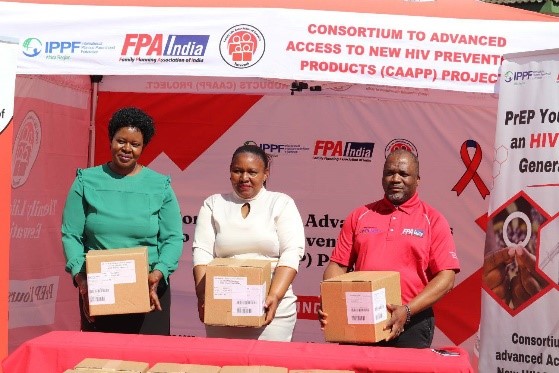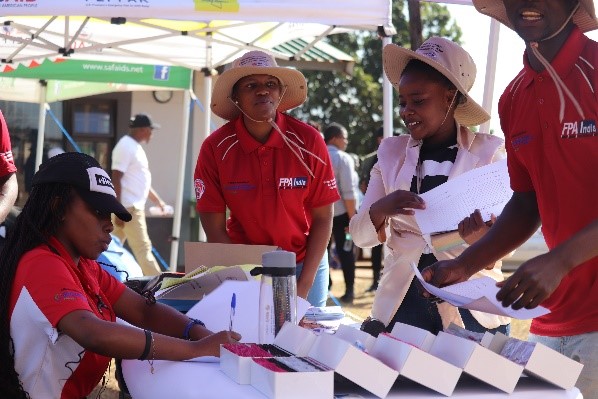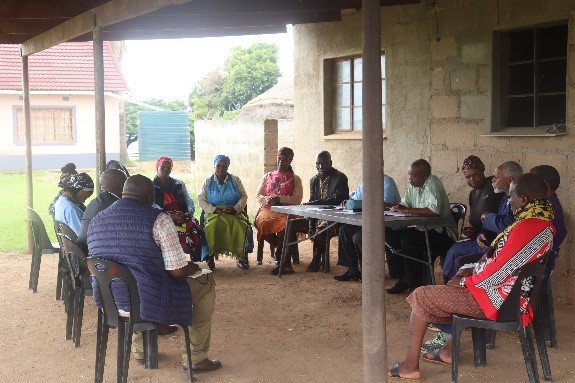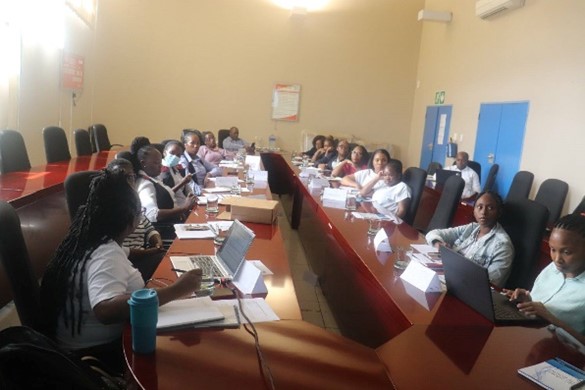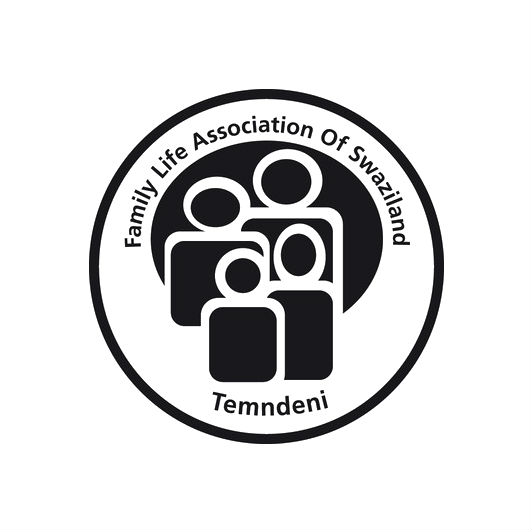On World AIDS Day, we commemorate the remarkable achievements of IPPF Member Associations in their unwavering commitment to combating the HIV epidemic. Their tireless efforts have significantly expanded access to prevention, sexual and reproductive health services, and rights, transforming the lives of countless individuals worldwide.
One of the key achievements of IPPF Member Associations has been their ability to expand access to essential sexual and reproductive health services through innovative approaches to HIV prevention, testing, and treatment. By establishing comprehensive service delivery networks and building the capacity of healthcare providers, they have ensured that individuals can access the care they need, regardless of their geographic location or socioeconomic status.
Eswatini has made significant strides in advancing sexual and reproductive health and rights (SRHR). The recent introduction of the dapivirine vaginal ring (DVR) and the potential availability of CAB-LA mark a pivotal moment in the country's HIV prevention efforts.
The Dapivirine Vaginal Ring (DVR): A Discreet and Effective Solution
The DVR, a discreet and user-friendly monthly ring, has revolutionized HIV prevention. By eliminating the need for daily pill-taking, it has significantly improved adherence rates and reduced the stigma associated with HIV prevention. This groundbreaking innovation has empowered individuals to take control of their sexual health and make informed decisions.
The adoption of the dapivirine vaginal ring in Eswatini marked a pivotal step in HIV prevention efforts as the ring offered a discreet and effective alternative to traditional methods. It has offered individuals more options to safeguard their health, expanding accessibility and flexibility in HIV prevention strategies. One of the key contributions that came with the Dapivirine vaginal ring is its monthly application, which has eliminated the need for daily adherence associated with oral PrEP. This simple innovative prevention method has brought in a huge contribution to the Kingdom’s HIV prevention efforts as it has reduced the strict time adherence, enhancing the overall effectiveness of the intervention.
In rural areas, the discreet nature of the dapivirine vaginal ring plays a significant role in mitigating the stigma surrounding HIV prevention. Unlike oral medication that may be visible to partners and family members. This discrete form of prevention will encourage more individuals to consider and utilize PrEP without fear of judgement or discrimination.
when
country
Eswatini
region
Africa
Subject
HIV and STIs
Related Member Association
Family Life Association of Eswatini (formerly Swaziland)
A Brighter Future for Eswatini
By combining these new HIV prevention tools with our existing SRHR services, we are working towards a future where everyone in Eswatini can live healthy, fulfilling lives. Our long-term vision is to create a society where individuals have the knowledge, skills, and resources to make informed choices about their sexual and reproductive health.
Our organization envisions an empowered generation that freely accesses full SRHR information and services as a basic human need. By introducing the new HIV prevention interventions like the dapivirine ring and CAB-LA, we aim to enhance the accessibility and effectiveness of HIV prevention tools, promoting sexual and reproductive health rights within communities that we serve. also these interventions will significantly contribute to reducing HIV transmission rates, increasing awareness about sexual health and ultimately empowering individuals to make informed decisions regarding their sexual and reproductive wellbeing.
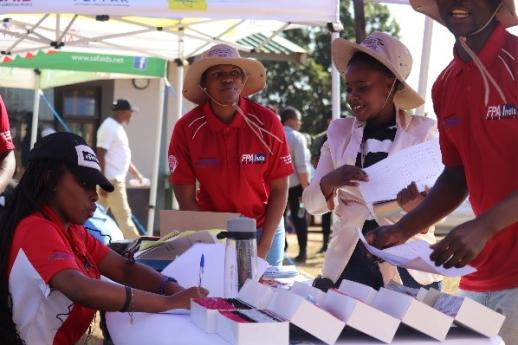
FLAS information desk at one of the Lutsandvo Loluphephile HIV prevention campaigns held at Lobamba Inkhundla.
FLASA Comprehensive Approach to HIV Prevention
The introduction of the dapivirine vaginal ring (DVR) and the potential availability of CAB-LA in Eswatini marks a significant milestone in the country’s fight against HIV. To ensure the successful implementation of these new interventions, FLAS has undertaken a comprehensive approach that involves community engagement, healthcare provider training, and strategic partnerships.
- Engagement with the Ministry of Health (MOH): The project was initiated by introducing it first to the Ministry of Health, seeking their guidance, collaboration, and support.
- Community introductions: Understanding the significance of community involvement, we conducted introductory sessions in all communities where the projects are implemented. This session aimed at fostering local understanding, trust and acceptance.
- Health Care Professionals Training: To boost our healthcare workforce, we provided comprehensive training to our nurses. the training was facilitated by experts from FHI-360, ensuring that our nurses are well-equipped to administer and support the dapivirine vaginal ring and CAB-LA project.
- Training of PrEP Ambassadors: Recognizing the role of community influencers, we organized a week-long training for the PrEP Ambassadors. These PrEP Ambassadors play a crucial role in in educating, creating awareness, and demand for the products as well as referring individuals to HIV prevention services.
- Partnerships for HIV prevention Campaigns: We forged strategic partnerships with other organizations to collaborate on HIV Prevention campaigns (Lutsandvo Loluphephile HIV Prevention Campaign- SAFAIDS). These campaigns were instrumental in sensitizing communities and individuals about the New Biomedical HIV Prevention Products.
- HIV prevention Campaign with the Key Populations Community: In our commitment to inclusivity and tailored interventions, we specifically conducted an HIV prevention campaign with the LGBTQI Community (Adorable HIV Prevention Campaign with Rock of Hope Eswatini). This initiative aimed at addressing the different needs, promoting awareness and providing access to the dapivirine vaginal ring and CAB-LA within the community.
Building a Strong Foundation for Success
Our organization has prepared for the distribution and administering of the Dapivirine ring and CAB-LA with great attention to detail for the target population of Eswatini. To ensure the effective and efficient delivery of these vital interventions, we have undertaken a comprehensive approach that focuses on community engagement, collaboration and capacity building.
To ensure the successful implementation of these new interventions, FLAS has undertaken a comprehensive approach:
- Community Engagement: We have worked closely with communities to raise awareness about HIV prevention options and address misconceptions.
- Healthcare Provider Training: Our dedicated healthcare providers have received rigorous training to provide comprehensive counseling and education on the use of the DVR and CAB-LA.
- Strong Partnerships: We have forged strong partnerships with government agencies, NGOs, and other stakeholders to strengthen the healthcare system and improve access to services.
- Addressing Stigma: We are committed to creating a supportive environment where individuals can access HIV prevention services without fear of judgment or discrimination.
We have introduced our HIV prevention interventions at the community level, establishing a presence in the areas where the preventive measures are needed the most. By working closely with the community leaders and residents, we have built trust, raised awareness and facilitated easy access to PrEP.
We have also invested in training programs for PrEP Ambassadors from the communities where the Dapivirine Ring and CAB-LA are being delivered. These PrEP Ambassadors play an important role in disseminating information, providing support and helping individuals to access HIV prevention services. We have also conducted comprehensive sessions for our healthcare professionals, particularly nurses. These nurses are equipped with the knowledge and skills necessary to deliver these services effectively in both static clinics and mobile clinics operated by our organization.
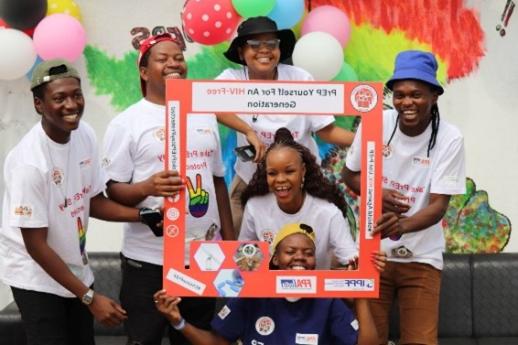
FLAS Audorable HIV Prevention Campaign
FLAS






